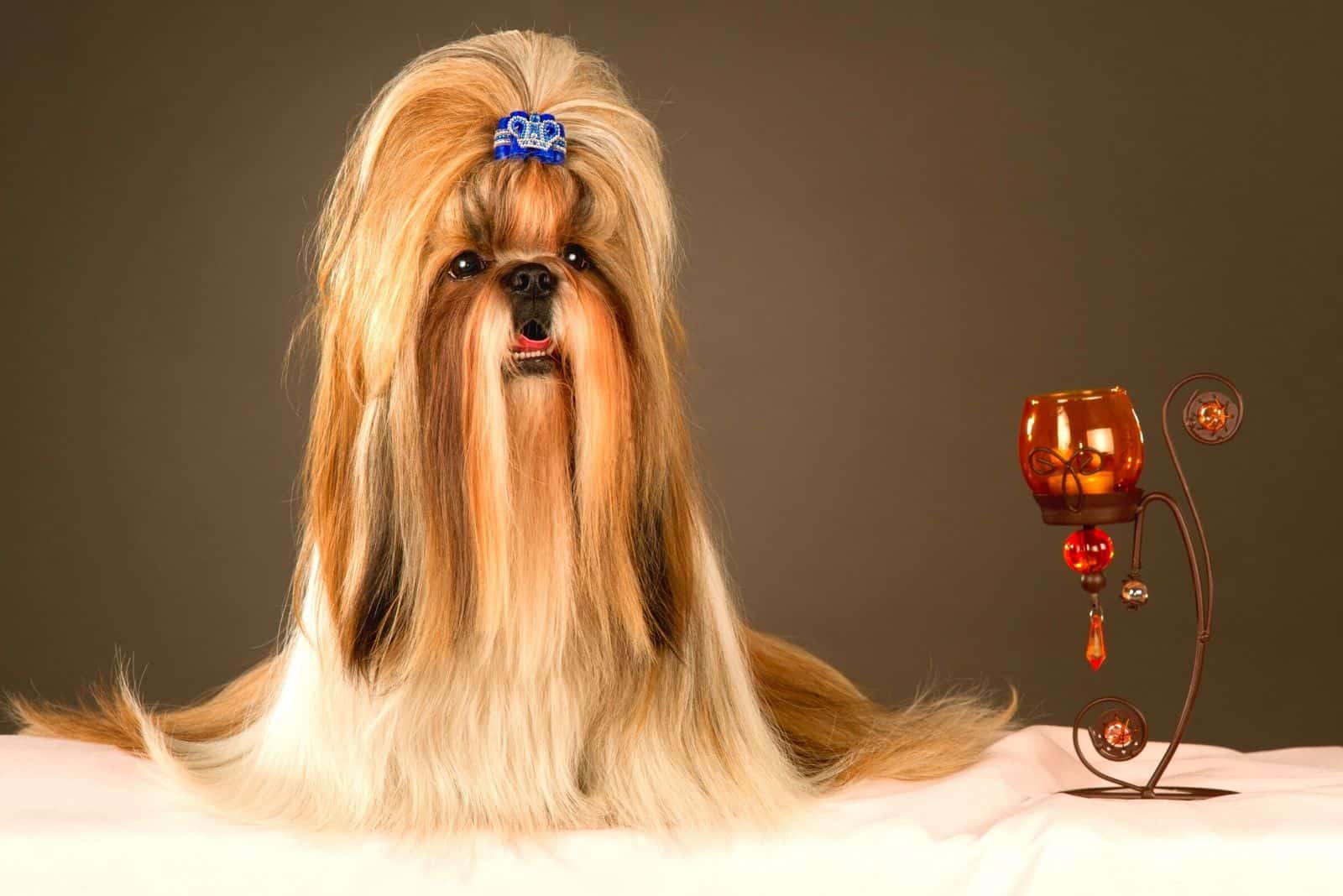The average lifespan of a Shih Tzu dog is between 10 and 16 years. However, some will live longer, and some, tragically, won’t even make it to a full decade. In general, a female Shih Tzu will live longer than a male by about 1.4 years.
Why is this? Many different factors affect life expectancy, some of which we can control, and others that we can’t.
We’ll explore these as we examine the Shih Tzu breed, and give some tips on how you can help give your dog the best chance of living a long, full, and happy life.
The Shih Tzu Breed
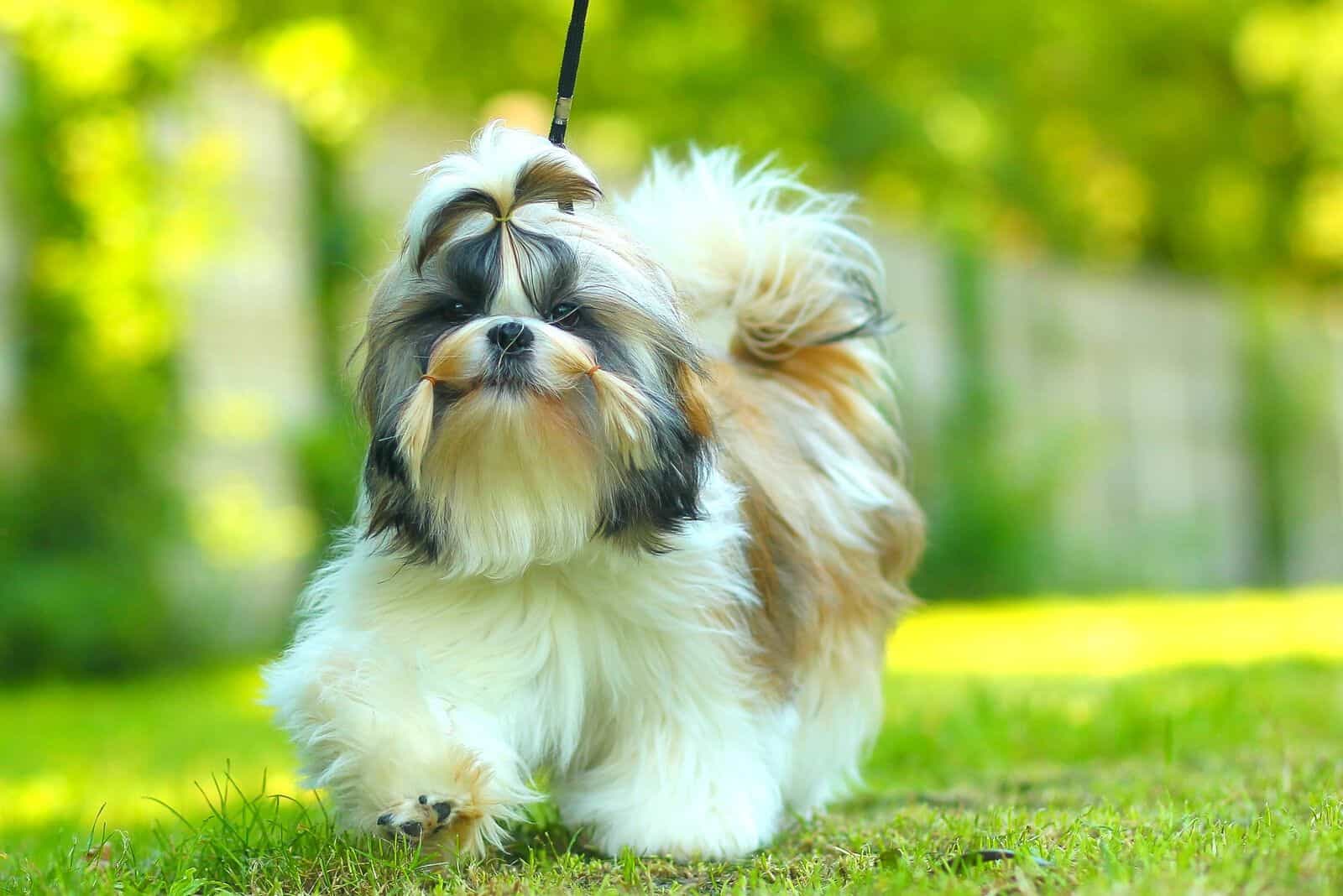
This is a toy dog with a rich history, gracing the laps of countless Chinese and Tibetan VIPs for hundreds of years before being brought over to the western world.
Its name means ‘lion dog’ or ‘little lion’, as they were bred to resemble lions of Chinese legend and folklore. This tiny dog is said to have been first bred in Tibet, possibly by using the Lhasa Apso and the Pekingese, or perhaps the Tibetan Mountain dog.
They are well known for their happy, outgoing, and friendly nature, as well as for being clever and just a little bit independent. Want a dog that’s good with kids?
Then, the Shih Tzu is the right choice, as they love children. And, if you don’t have a lot of space, these little dogs will fit almost anywhere.
Their exercise needs are minimal, they’re not likely to chase squirrels, and they won’t dig up your garden. They’re content with sleeping on your lap, and they will take all the cuddles you care to dish out.
It is thought that the Chinese resisted attempts to take them out of the country for many years. If you’ve met one of these lovely little lions, you’ll understand why China wanted to keep them for themselves!
They are a small breed, standing about 9 to 10.5 inches (23 to 26.6 cm) high, and weighing between 9 and 16 lbs (4 and 7 kg).
Shih Tzu Life Expectancy
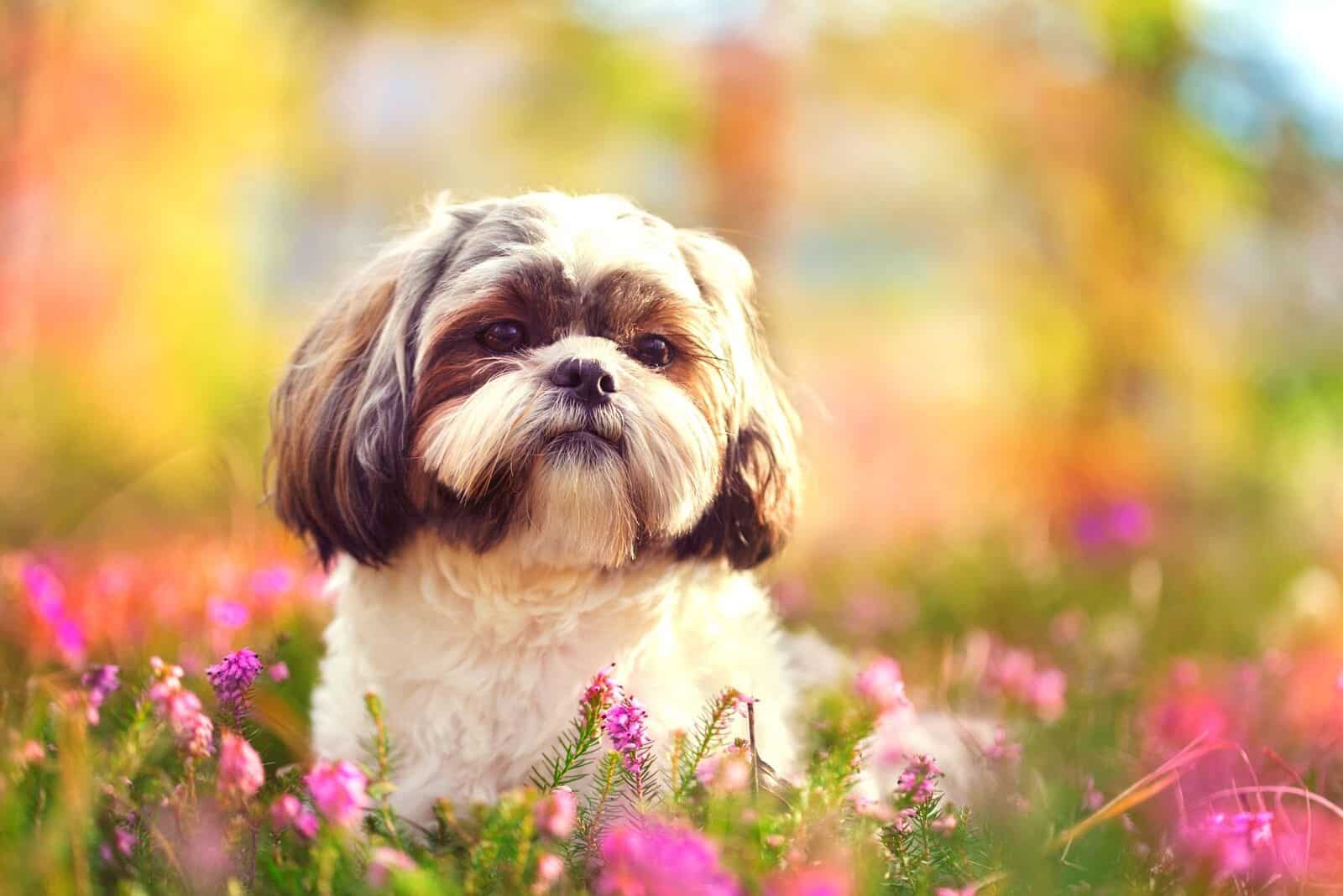
A Shih Tzu puppy is a wonderful thing. It lifts your spirits and makes everyone smile. It melts your heart and fills a void in your life that you didn’t even realize was there.
So, the last thing on your mind is that heartbreaking day when your beloved fur-baby takes its last breath.
Even so, as responsible pet owners, we have to consider every aspect of their life. In a way, we can use the thought of that (hopefully) far-off day as an incentive to do things right. And, if we play our part, then we can help keep them around longer.
So, rather than view this as a morbid task, let’s think of this as a positive process!
We saw at the start that the Shih Tzu lifespan is somewhere between ten and sixteen years, although the American Kennel Club stretches the upper limit to 18 years. Organizations such as the UK Kennel Club suggest a median age of thirteen years.
So, which is it? It’s impossible to say, at least for any individual dog.
However, the good news for Shih Tzu owners is that small dogs tend to have a longer lifespan than large breeds. For example, the Great Dane has a life expectancy of between eight and ten years!
Although it’s not fully understood why this is, it may be because big dogs have to grow quickly, and therefore, age much faster.
Sadly, that doesn’t mean that all small dogs will reach that enviable target of sixteen years, eighteen years, or more.
Accidents are all too often a cause of death. This is difficult to contemplate, but it stresses the importance of being aware of potential hazards as much as possible.
Small dogs might live longer in general, but they are prone to being stepped on, tripped over, or even dropped.
Inquisitive dogs will wander if yards aren’t securely fenced, and dogs on a long leash may suddenly dart out in front of traffic. Therefore, you need to have your wits about you at all times!
Trauma is the number one cause of death for all dogs under the age of one year. And then, there’s the ever-present specter of sickness.
What Do Shih Tzu Usually Die Of?

It depends on who you ask! Some experts list complications due to old age as the leading cause of death. Other possible causes include heart problems, organ failure, and cancer.
Whicher one of these is the leading cause, most of them are serious concerns when it comes to the Shih Tzu lifespan.
If the first group of experts is correct, then the Shih Tzu usually dies of old age, which is perhaps a better way to go than dying from cancer or heart/kidney failure.
However, like all purebred dog breeds, the Shih Tzu faces a whole host of health problems. Not many of these are life-threatening in themselves, but they can cause pain and discomfort.
Some may lead to further complications that could affect the dog’s lifespan. The following list shows a few of the more common health issues you might expect to see in your Shih Tzu:
• Hip dysplasia – a genetic health condition that is caused by poorly formed hip joints. The bones scrape together as the dog walks, which can be very painful. Cases range from mild to severe, in which case, your vet will recommend a total hip replacement.
The obvious concern here will be the general anesthetic, which can be a huge risk for little dogs.
• Eye problems – Shih Tzus are particularly prone to eye diseases. Corneal ulcers, glaucoma, dry eye, and cataracts are very common.
• Patellar luxation – the patella (knee caps) sit within a groove. Sometimes, this groove is too shallow, allowing the kneecap to slip out while the dog is walking, and causing them pain.
Mild cases shouldn’t need treatment, but serious problems will require physiotherapy and/or surgery.
• Dental problems – as the Shih Tzu is a brachycephalic breed with a flat face and short muzzle, they are prone to missing, overcrowded, or misaligned teeth. Periodontal disease is another problem for Shih Tzus, so their teeth must be brushed regularly.
• Ear infections – a buildup of dirt and wax could result in infections, which is why it is essential to clean their ears frequently. If left untreated, infections can reach the inner ear and may damage the dog’s hearing.
• Obesity – it is easy for older dogs to become overweight, which will harm their health in many ways. This is why it is important to give them a healthy diet, and also try to make sure they have enough exercise. One of the main concerns with obesity is the effect it has on the heart, as they are already prone to heart disease.
Other than these, there are the usual infections, such as distemper and parvovirus, but the majority of these can be eliminated through vaccinations when they are puppies.
One major factor in the Shih Tzu’s health is that they are brachycephalic, as mentioned, concerning dental problems. However, it isn’t only their teeth that this affects.
Brachycephalic dogs often have problems breathing, and are not good swimmers. Great care should be taken if your Shih Tzu heads into deep water for any length of time.
They are also susceptible to heatstroke because they can’t regulate their body temperature like other dogs.
When they need to cool down, dogs with long muzzles draw air through their nose where it picks up moisture. This moisture gathers heat from the lungs and then is expelled as the dog pants.
Shih Tzus (and all brachycephalic breeds) are unable to do this because of their shortened muzzle, meaning that they can easily overheat.
Is 13 Old For A Shih Tzu?

When a Shih Tzu reaches ten years of age, they are considered as being a senior dog. By age thirteen, they are pretty well into old age.
This doesn’t necessarily mean that they are going to cross the rainbow bridge anytime soon! But, it does mean that you may start to notice changes as their little bodies age.
Here are a few of the areas that may be affected:
• Sight – their vision starts to fail.
• Teeth – they’ll often lose teeth, which can make it difficult to eat.
• Hearing – they won’t respond as they can’t hear as well as they used to.
• Bladder/bowel – they may lose control of their bladder and/or bowel movements, partially or completely.
• Stamina – they will lose interest in exercise and won’t want to play.
• Mobility – they won’t be able to move about as freely and easily as before.
• Muscles – you might notice muscle wastage.
• Sleep patterns – they’ll sleep a lot more.
These are just possibilities, and they are not certain to happen. When your dog reaches the 10-year milestone, your vet may begin describing them as a senior.
This isn’t just a label; it’s a medical indicator that your dog now requires extra care and attention. Ideally, you should take it for wellness check-ups at least every six months.
Because your dog is now a senior, the vet will probably give it a more thorough examination, including blood, urine, and feces testing.
They may also suggest ultrasound scans or X-rays. All of these are designed to catch any disease early, and give the best prognosis for the future.
Lifespan Of Maltese Shih Tzu
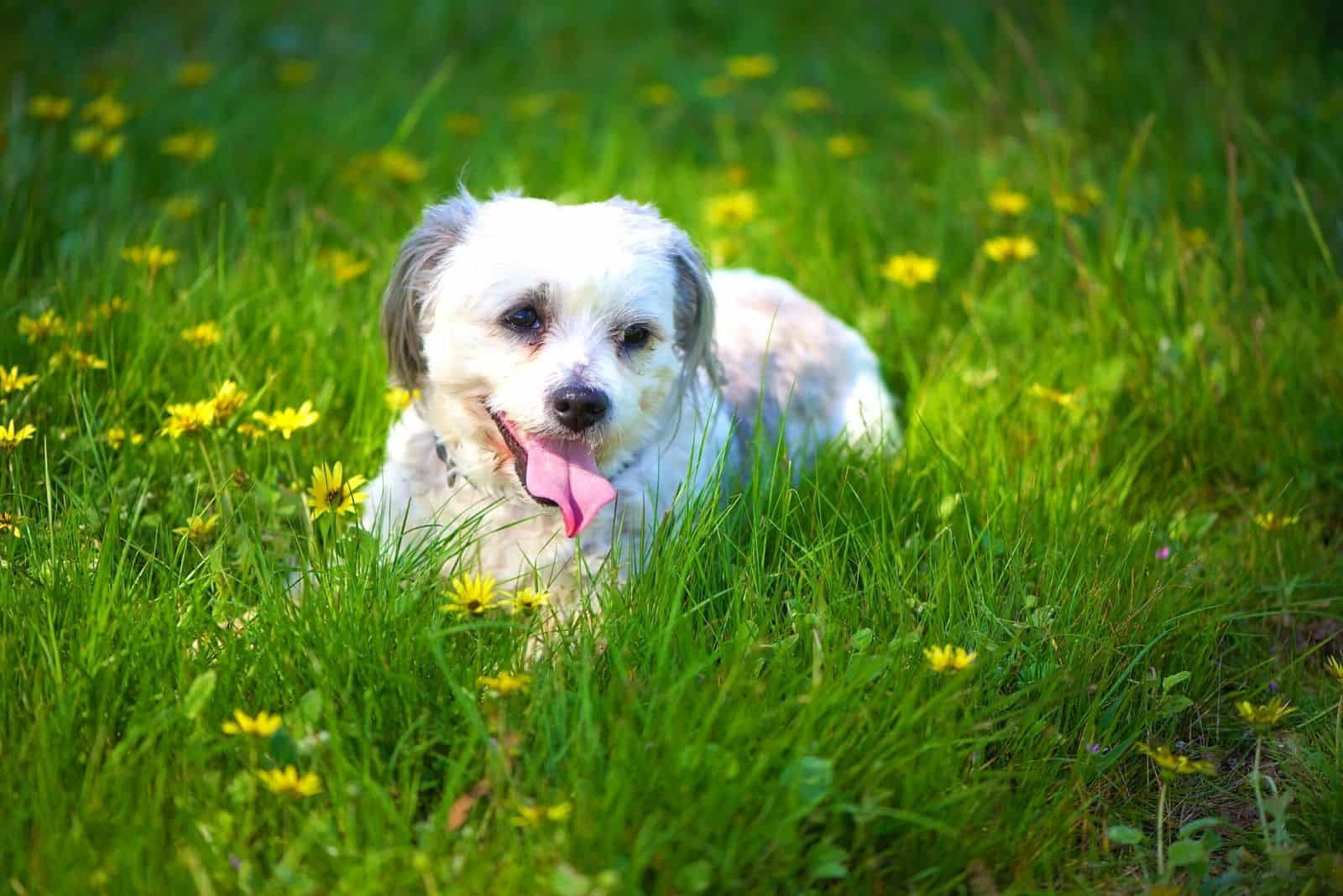
This crossbreed captures the best of both dogs, and has a life expectancy of between 12 and 14 years. Although, as the breed is only around 30 years old and isn’t recognized by any kennel club around the world, the data is incomplete.
With no breed standards to follow, they can vary in size, weight, and color. However, as you can see, there is a much narrower range than the Shih Tzu lifespan, with 13 years being the average once again.
Lifespan Of A Shih Tzu Poodle
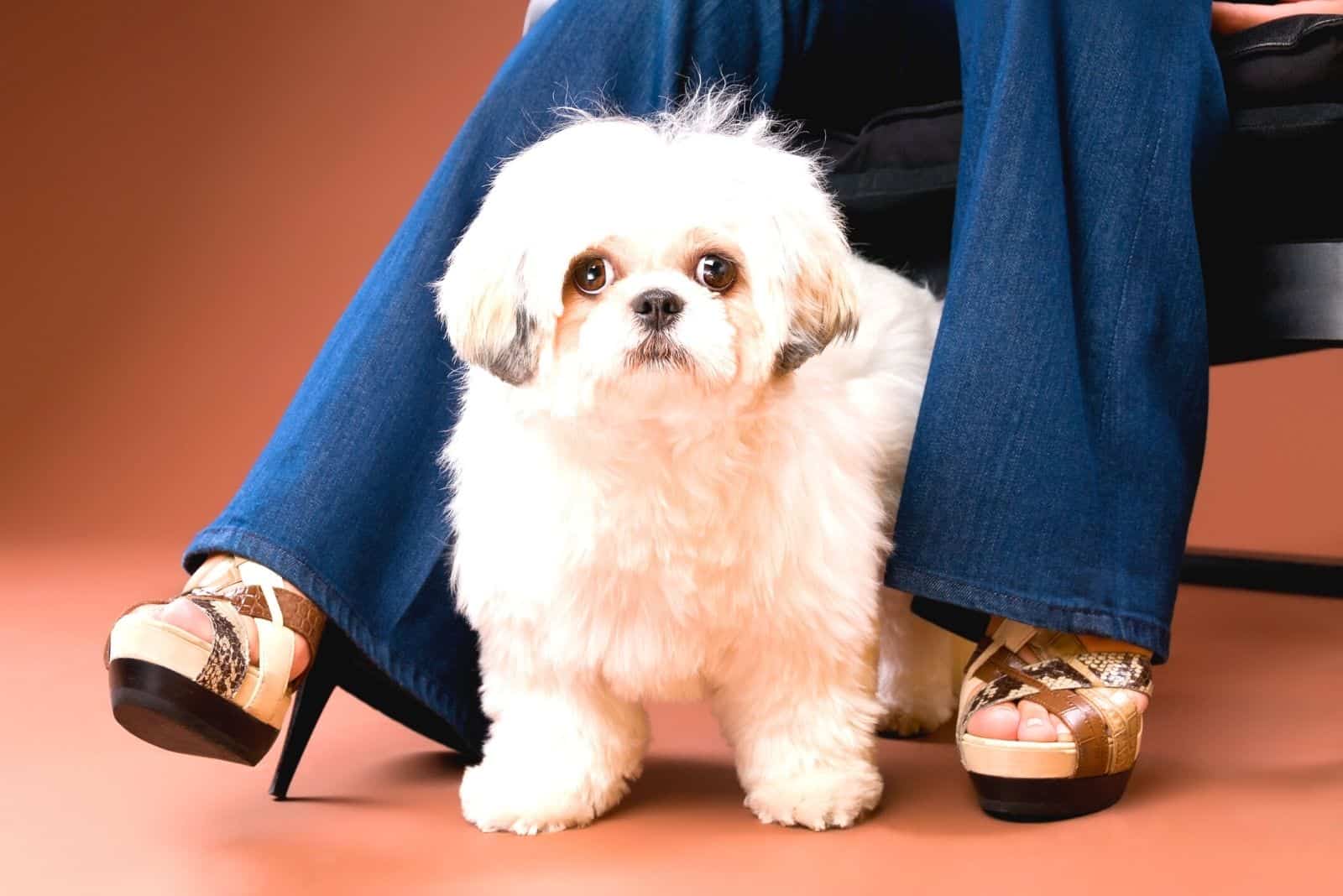
Just when you think dogs can’t get any cuter, along comes the Shih-Poo, or Shoodle! This is a cross between the Toy Poodle and the Shih Tzu, and it is adorable.
It also has a lot of energy, and it has an infectious playfulness that will have the whole family joining in the fun and games. Better yet, it has an expected lifespan of up to sixteen years!
Some sources suggest a figure of between 10 and 15 years of age, but others claim that you can safely assume that your Shih-Poo will easily reach that upper target.
Though not the best choice for first-time dog owners (because of its stubbornness in training and housebreaking), it could be good for allergy sufferers, as its coat inherits the Poodle’s allergy-friendly qualities.
Can Shih Tzu Live 20 Years?
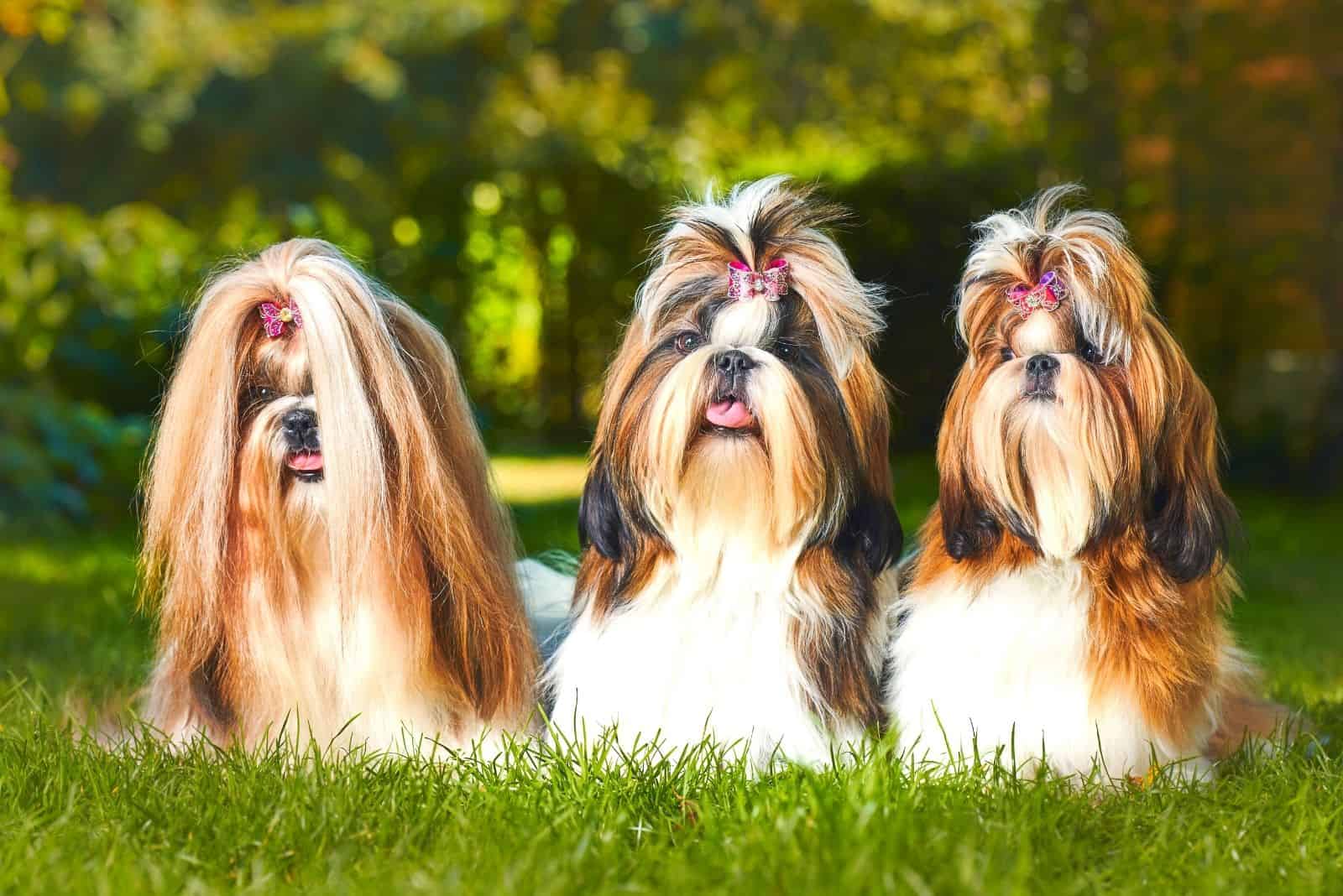
Yes, it is certainly possible for a Shih Tzu to live this long.
The oldest Shih Tzu (so far) was called Smokey, who passed away in Florida, in 2009, at the age of 23 years! Bear in mind that this is the only verified record, and there may be others who have lived as long, maybe even longer.
The Shih Tzu lifespan might be as much as 16, 18, or 20 years, but we also need to remember that long life doesn’t always bring quality of life. If the dog is healthy and happy, then all is well and good.
However, if an old dog is suffering and barely able to move, then it’s time to consider letting them go. As heartbreaking as that decision is, it is often the kindest.
How Can I Extend My Shih Tzu’s Lifespan?
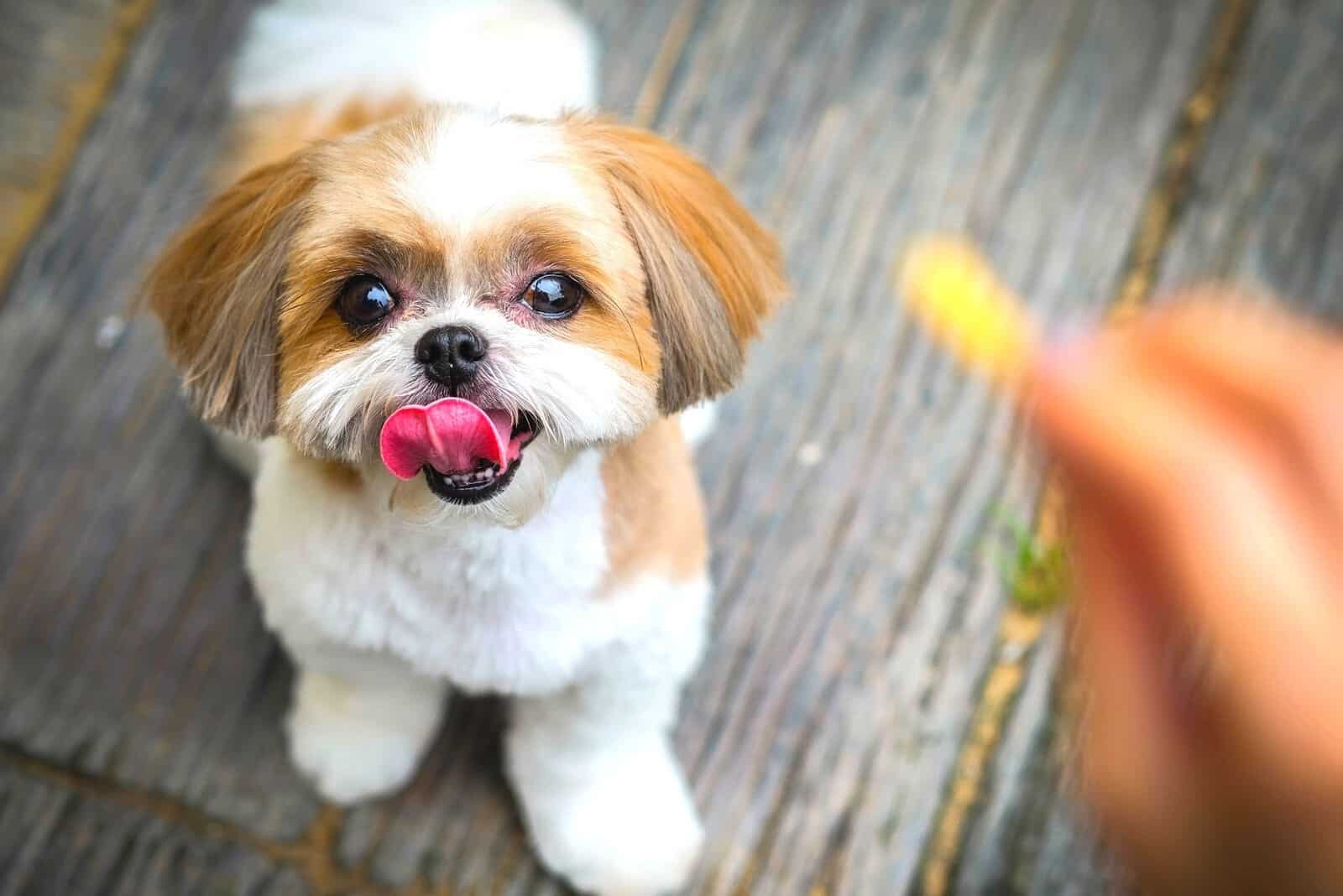
First and foremost, get your puppy from a reputable breeder.
Good breeders will test for certain health conditions, reducing the chances of getting an unhealthy pup. Some will begin the training process, including potty training, which will make your life easier when you get your puppy home.
They might also have them vaccinated, which protects against infections while they’re still developing.
Once you get your pup home, it’s time to start planning for a long and healthy life for your best friend.
Starting with their diet, they should be fed age-appropriate, high-quality dog food. If you’re unsure about the quantity, speak with your veterinarian for advice.
You need to be careful not to overfeed them, as even a small amount of excess weight can cause health problems in small dogs.
They respond well to reward-based training, but take care not to overdo it with treats.
Avoid giving them fatty foods or table scraps. Check online or with your vet before changing their diet or giving them any human food, as there are hidden dangers that can be fatal to dogs!
Things like onions, garlic, chocolate, salt, and the artificial sweetener called xylitol are included in this list.
Although they’re small, they have a lot of energy. Luckily enough, they are so small that you don’t need a lot of space for them to expend this energy.

Playtime in the yard, or even in the middle of the room, is enough to wear them out; then they’ll happily settle on your lap for a snooze.
If you take them outdoors for a walk, remember they have little legs! They tire easily and can have trouble breathing, so always be aware of how they’re coping.
You should also keep in mind that they aren’t good swimmers, and can quickly get into difficulty in the water.
Unless it’s clipped short, their long coat will require regular grooming, and by ‘regular’, we mean daily brushing to keep it free from tangles.
The dog’s diet will go a long way toward keeping the coat healthy, and the condition of the coat is a good indicator of a dog’s general health.
If the long coat is too much for you to handle, you can always get your dog a ‘puppy trim’ at the groomer. This makes the dog look adorable, and it makes it easier to manage, though you might want to invest in a dog coat for cooler days.
The hair on their head should be cropped short or tied up in a topknot to keep it from irritating their eyes.
You should check and wipe their eyes and ears on a regular basis, as well as brush their teeth and clip their toenails.
Got all that? Then, you’re good to go! Other than these tips, be sure to check in with the vet if you suspect that there are any problems, and book a visit for a general check-up once in a while anyway.
With your love, care, attention, and a little luck, your furry buddy will be giving Smokey a run for its money in the ‘Oldest Shih Tzu’ title!
Read Next: Shih Tzu Pregnancy Guide: Weekly Expectations


